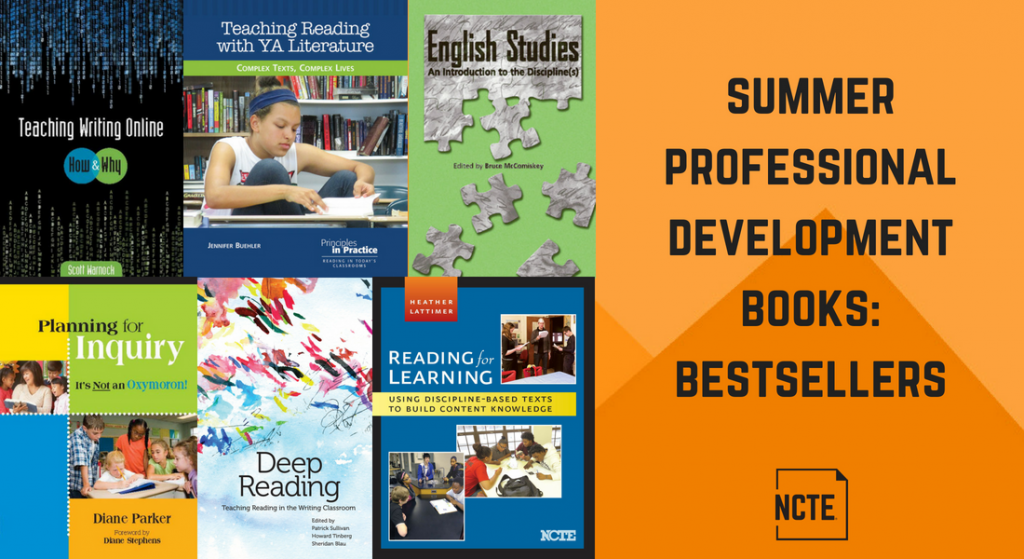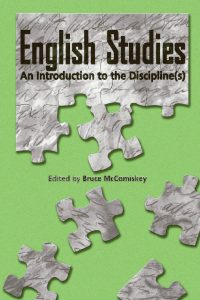Summer is an excellent time for recharging; it’s also an excellent time for finding new inspiration. NCTE members have written excellent books on a range of topics you might find interesting, and we’ve pulled together a list of bestsellers for your review.
May is a perfect month for stocking up on these titles and others because we’re offering a 25% discount on all our books through the end of the month. Use the code APPRECIATE2018. Happy reading.
Code-Switching: Teaching Standard English in Urban Classrooms by Rebecca Wheeler and Rachel Swords
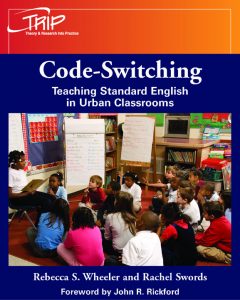 Wheeler and Swords show teachers how to use code-switching and contrastive analysis to help students use prior knowledge to translate vernacular English into Standard English. The book offers a practical, hands-on guide to code-switching, providing teachers with step-by-step instructions and numerous code-switching charts that can be reproduced for classroom use.
Wheeler and Swords show teachers how to use code-switching and contrastive analysis to help students use prior knowledge to translate vernacular English into Standard English. The book offers a practical, hands-on guide to code-switching, providing teachers with step-by-step instructions and numerous code-switching charts that can be reproduced for classroom use.
Read a sample chapter.
Connected Reading: Teaching Adolescent Readers in a Digital World by Kristen Hawley Turner and Troy Hicks
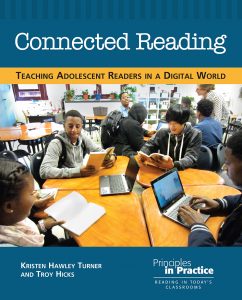 Turner and Hicks argue that we must teach adolescents how to read digital texts effectively, not simply expect that teens can read them because they know how to use digital tools. The book offers practical tips by highlighting classroom practices that engage students in reading and thinking with both print and digital texts, thus encouraging reading instruction that reaches all students.
Turner and Hicks argue that we must teach adolescents how to read digital texts effectively, not simply expect that teens can read them because they know how to use digital tools. The book offers practical tips by highlighting classroom practices that engage students in reading and thinking with both print and digital texts, thus encouraging reading instruction that reaches all students.
Read a sample chapter and check out additional resources on the companion wiki site.
Deep Reading: Teaching Reading in the Writing Classroom, edited by Patrick Sullivan, Howard Tinberg, and Sheridan Blau
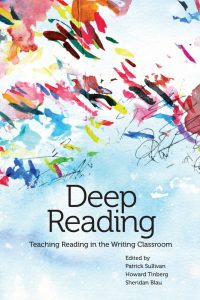 Contributors to this collection—high school teachers, college students who discuss the challenges they faced as readers and writers, and composition scholars—argue that college-level reading must be theorized as foundationally linked to any understanding of college-level writing.
Contributors to this collection—high school teachers, college students who discuss the challenges they faced as readers and writers, and composition scholars—argue that college-level reading must be theorized as foundationally linked to any understanding of college-level writing.
Read a sample chapter and check out the authors’ interview on Education Talk Radio.
English Studies: An Introduction to the Discipline(s), edited by Bruce McComiskey
Well-known scholars in the field explore the important qualities and functions of English studies’ constituent disciplines—Ellen Barton on linguistics and discourse analysis, Janice Lauer on rhetoric and composition, Katharine Haake on creative writing, Richard Taylor on literature and literary criticism, Amy Elias on critical theory and cultural studies, and Robert Yagelski on English education—and the productive differences and similarities among them that define English studies’ continuing importance.
Read a sample chapter.
Planning for Inquiry: It’s Not an Oxymoron! by Diane Parker
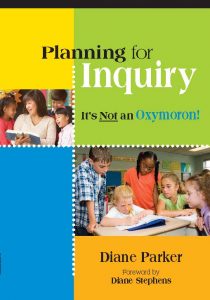 In today’s educational climate of one-size-fits-all instruction, Planning for Inquiry shows you how to get an inquiry-based curriculum started, how to keep it going, and how to do so while remaining accountable to mandated curricula, standards, and programs. Supported by a wealth of stories and examples, Parker shares a practical yet nonprescriptive framework for developing curriculum from learners’ questions and authentic classroom events.
In today’s educational climate of one-size-fits-all instruction, Planning for Inquiry shows you how to get an inquiry-based curriculum started, how to keep it going, and how to do so while remaining accountable to mandated curricula, standards, and programs. Supported by a wealth of stories and examples, Parker shares a practical yet nonprescriptive framework for developing curriculum from learners’ questions and authentic classroom events.
Read a sample chapter.
Reading for Learning: Using Discipline-Based Texts to Build Content Knowledge by Heather Lattimer
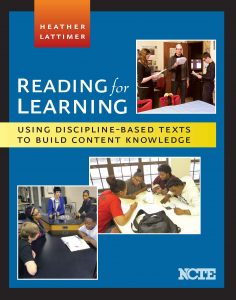 Drawing on research in human cognition, reading development, and discipline-specific pedagogies, Heather Lattimer provides practical, classroom-tested approaches to helping students access and critically respond to content-based texts. Rich in classroom examples, the book strives not to remake content teachers into reading teachers, but instead to support content teachers in using texts to deepen students’ understanding of the core ideas, critical information, and ways of thinking in the disciplines.
Drawing on research in human cognition, reading development, and discipline-specific pedagogies, Heather Lattimer provides practical, classroom-tested approaches to helping students access and critically respond to content-based texts. Rich in classroom examples, the book strives not to remake content teachers into reading teachers, but instead to support content teachers in using texts to deepen students’ understanding of the core ideas, critical information, and ways of thinking in the disciplines.
Read a sample chapter.
Teaching Reading with YA Literature: Complex Texts, Complex Lives by Jennifer Buehler
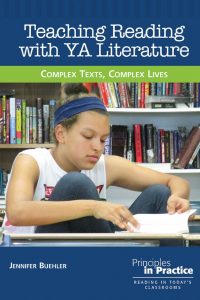 Today’s YA lit provides the books that speak to the world of teens even as they draw them out into the larger world. But we have to do more than put YA titles in front of students and teach these books as we’ve traditionally taught more canonical works. Instead, we can implement a YA pedagogy—one that revolves around student motivation while upholding the goals of rigor and complexity. Buehler explores the three core elements of a YA pedagogy with proven success in practice: (1) a classroom that cultivates reading community; (2) a teacher who serves as book matchmaker and guide; and (3) tasks that foster complexity, agency, and autonomy in teen readers.
Today’s YA lit provides the books that speak to the world of teens even as they draw them out into the larger world. But we have to do more than put YA titles in front of students and teach these books as we’ve traditionally taught more canonical works. Instead, we can implement a YA pedagogy—one that revolves around student motivation while upholding the goals of rigor and complexity. Buehler explores the three core elements of a YA pedagogy with proven success in practice: (1) a classroom that cultivates reading community; (2) a teacher who serves as book matchmaker and guide; and (3) tasks that foster complexity, agency, and autonomy in teen readers.
Read a sample chapter and watch a video of Principles in Practice editor Cathy Fleischer interviewing Jennifer Buehler along with award-winning authors Matt de la Peña and A.S. King.
Teaching Writing Online: How and Why by Scott Warnock
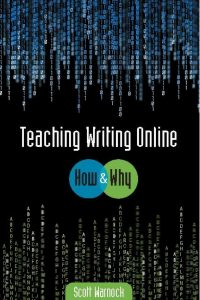 More than just the latest trend, online writing instruction offers a way to teach writing that brings together theoretical approaches and practical applications. Whether you are new to teaching writing online or are looking for a more comprehensive approach, this book will provide the ideas and structure you need.
More than just the latest trend, online writing instruction offers a way to teach writing that brings together theoretical approaches and practical applications. Whether you are new to teaching writing online or are looking for a more comprehensive approach, this book will provide the ideas and structure you need.
Read a sample chapter and a review of the book.

